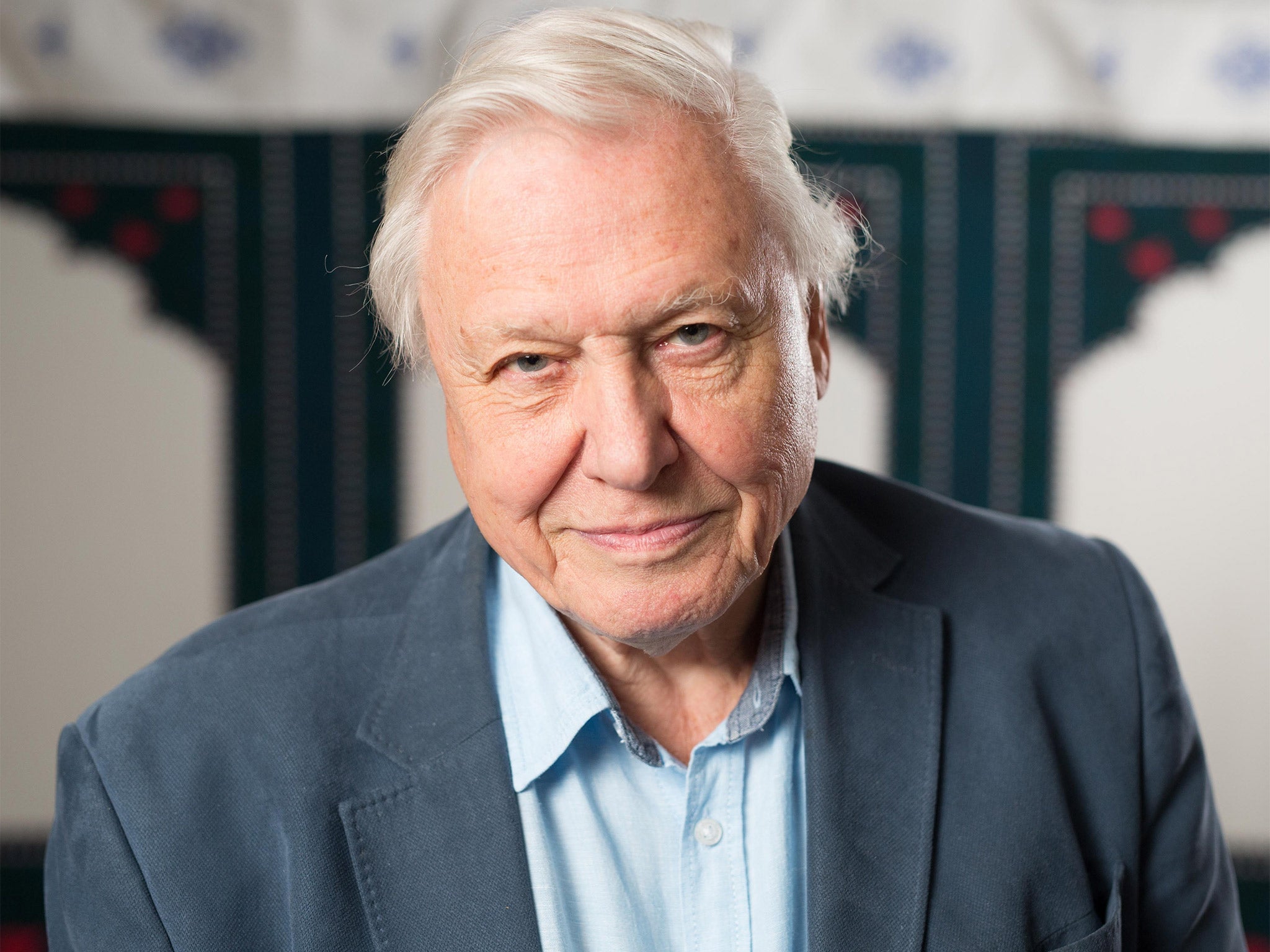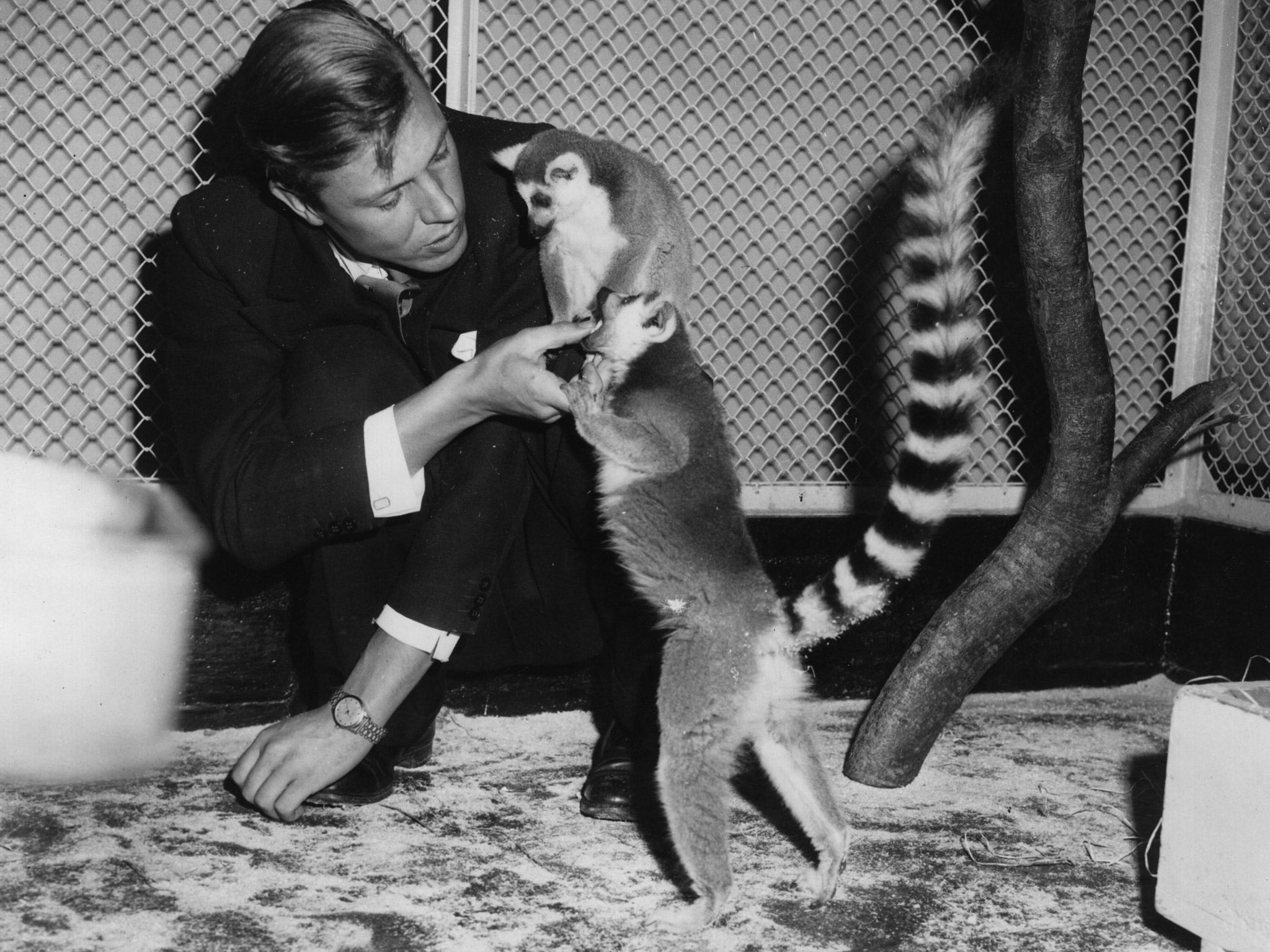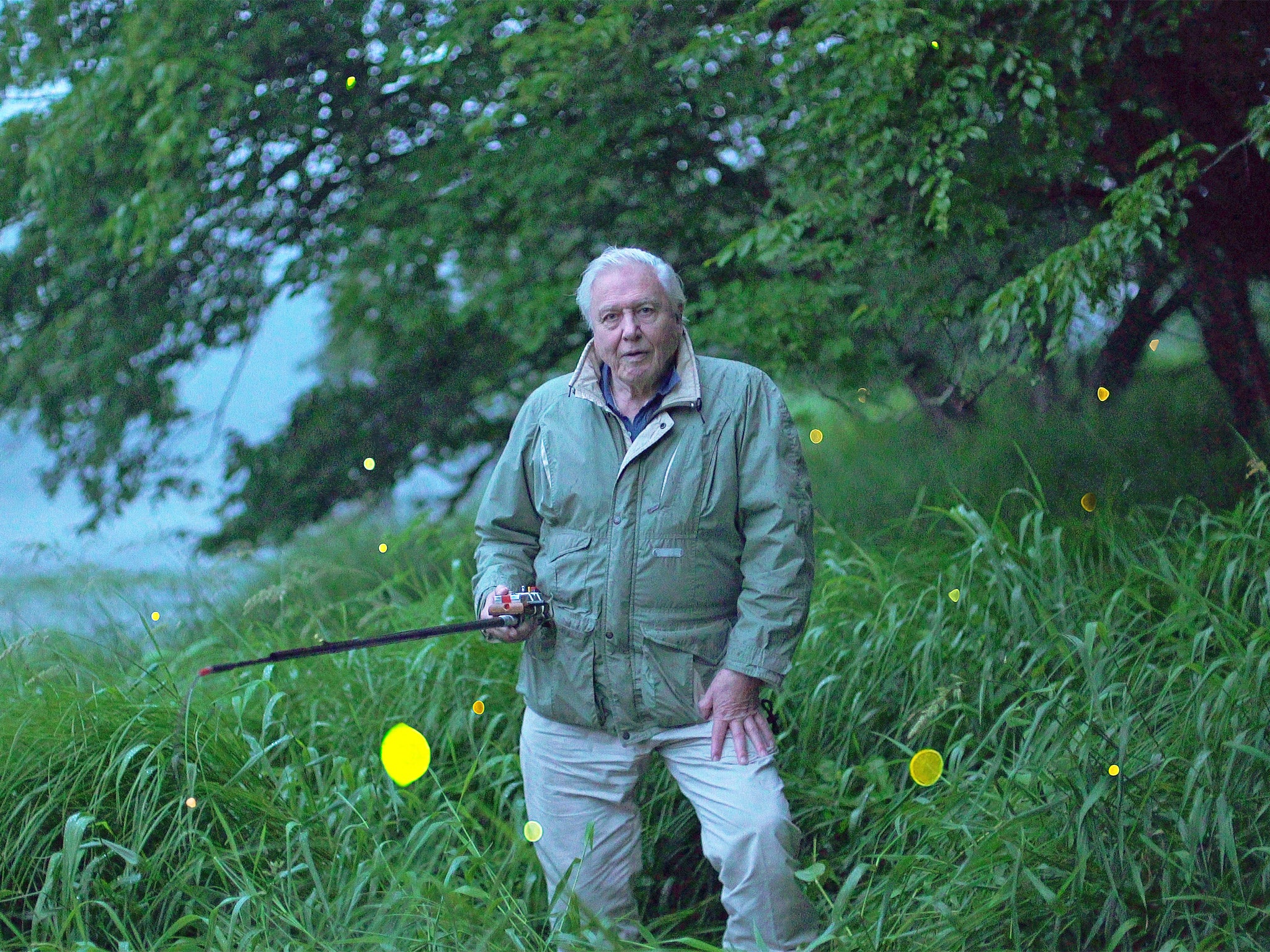Sir David Attenborough to mark 90th birthday with new BBC specials
The milestone will be recognised with a one-hour special, Inspiring Attenborough: Sir David at 90

Your support helps us to tell the story
From reproductive rights to climate change to Big Tech, The Independent is on the ground when the story is developing. Whether it's investigating the financials of Elon Musk's pro-Trump PAC or producing our latest documentary, 'The A Word', which shines a light on the American women fighting for reproductive rights, we know how important it is to parse out the facts from the messaging.
At such a critical moment in US history, we need reporters on the ground. Your donation allows us to keep sending journalists to speak to both sides of the story.
The Independent is trusted by Americans across the entire political spectrum. And unlike many other quality news outlets, we choose not to lock Americans out of our reporting and analysis with paywalls. We believe quality journalism should be available to everyone, paid for by those who can afford it.
Your support makes all the difference.It’s a decade since Sir David Attenborough, then about to turn 80, announced that his next blockbuster BBC series would be his last. But now all thoughts of retirement have been cast aside as the greatest living natural history broadcaster announced that he will mark his 90th birthday next year with a brace of new programmes, including an investigation into bioluminescence.
Sir David, whose latest hit BBC1 series The Hunt reveals the strategies used by both predators and prey, turns 90 next May.
The milestone will be recognised with a one-hour special, Inspiring Attenborough: Sir David at 90, in which Kirsty Young talks to the broadcaster about his career, his extraordinary journeys, and the unique animal encounters he has had across the globe.

Recorded in front of a studio audience, the programme will celebrate Sir David’s contribution to our understanding of the natural world, and to the development of television broadcasting, in a career that has spanned seven decades. He and Kirsty will be joined by film makers, zoologists, conservationists, biologists, anthropologists as well as pioneers from the world of broadcasting.
Sir David will reflect on key moments from his career, from capturing unique animal behaviour for the first time and uncovering critical conservation stories to the fast paced advancement in filming technology over recent decades.
In a second programme, Light on Earth, a verbal echo of the pioneering Life on Earth series, Sir David will examine the spectacular and magical light produced by glow worms, fire flies and luminous plankton is what is known as bioluminescence - light made by living things.

Sir David Attenborough guide viewers through a world he describes as "utterly unlike our own". The film is already under production and the BBC said it had captured “amazing sequences filmed for the first time” including the “bioluminescent millipede glowing on the forest floor; the bioluminescence of a living dragon fish; the mesmerising flashing light patterns of the synchronous firefly in real time; and the spooky glow of the lantern shark's belly.”
Retirement is no longer on the agenda for Sir David. “Not if I’m still being asked to do great series,” he said. “If Alastair (Fothergill, executive producer of The Hunt and The Blue Planet) asks me to do something, I will, just as long as I can get there in the wheelchair.”
Sir David will be back on screens at Christmas with a three-part BBC1 series in which he returns to the Great Barrier Reef, nearly 60 years after taking his first deep-sea dive at the world’s largest coral reef system, in Australia.

Watch Apple TV+ free for 7 days
New subscribers only. £8.99/mo. after free trial. Plan auto-renews until cancelled

Watch Apple TV+ free for 7 days
New subscribers only. £8.99/mo. after free trial. Plan auto-renews until cancelled
Climbing aboard the Alucia, a 56-metre research and exploration vessel equipped with a state-of-the-art Triton submersible, laboratories and a helicopter, the naturalist embarked upon the deepest manned dive recorded at the reef - to 1,000ft - and saw parts of its flora and fauna never before viewed.
Sir David embarks upon a mission to save the threatened Reef. He consults leading scientists and visits its island research stations where researchers and their teams are trying to help corals cope with the climate’s rapid change.
Join our commenting forum
Join thought-provoking conversations, follow other Independent readers and see their replies
Comments